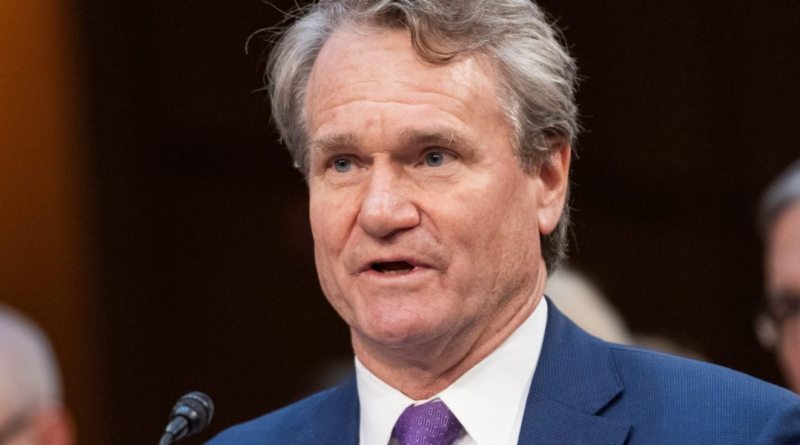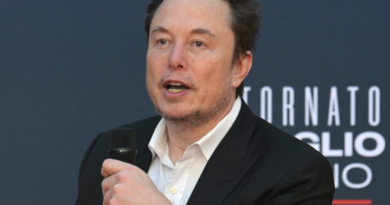Bank of America CEO Brian Moynihan says 'we need to get after' America's $34tn national debt: 'You can either admire the problem or do something about it'
Wall Street is officially done ignoring the government’s eye-watering national debt bill. JPMorgan’s Jamie Dimon says it’s a global “rebellion” waiting to happen, with Bank of America CEO Brian Monyihan adding this week that it’s time Washington looked the problem in the eye.
Moynihan’s message comes a day after Fed chairman Jerome Powell called for an “adult conversation” about fiscal responsibility, telling CBS’s 60 Minutes it’s now “past time to get back to an adult conversation among elected officials about getting the federal government back on a sustainable fiscal path.”
The government has racked up a bill of more than $100,000 per U.S. citizen, prompting warnings about what this means for public spending and, as global tensions escalate, national security.
Indeed, former House Speaker Paul Ryan warned during a panel at the Bipartisan Policy Center late last month that before long the White House will be spending more servicing its debt than it invests in the Pentagon.
Ryan described the debt issue as the “most predictable crisis we’ve ever had,” a summary Dimon agrees with, and Moynihan is now adding his voice to those who want to see action.
Speaking on Teneo’s Insight Series podcast released Feb. 5, Moynihan said: “We’ve got to start paying attention not only in this country but around the world to debt levels as a percentage of GDP.”
For the fiscal year of 2023, America’s debt to GDP ratio reached 123% according to the Treasury website. It surpassed 100% for the first time in 2013 when both debt and GDP were approximately $16.7 trillion.
In June the Congressional Budget Office warned this balance could tip to 181% of GDP by 2053, driven by huge interest payments as well as greater demand for social security and healthcare support.
“We need to start to think about how to change the curves around—so more revenue, less expenditure, some combination of both—but you have to start to bend that curve out in the future,” Moynihan told podcast host Kevin Kajiwara, co-president of political risk at the global advisory firm. “People recognize you can admire the problem or you can do something about it, so we have to get after that.”
Spending had to happen
Cutting spending is rarely easy in Washington, however, and Moynihan points out that chunks of the heavy spending under the Biden and Trump administrations were unavoidable.
The CARES act passed by congress in 2020 for example saw $2.2 trillion allocated to pandemic support, and was the largest spending bill passed in the nation’s history. Another example is President Biden’s CHIPS act, pledging a $53 billion investment into semiconductor manufacturing, research and development, and workforce, in a bid to protect the U.S. from supply shocks for the vital parts.
But those bit bills can’t become the norm, Moynihan notes.
“In COVID you had to find a way to preserve the economic activity given that you’d ordered people not to be open,” said Moynihan. “That was all great thought process but then you’ve got to back out and let the free market take over again. That’s where I get worried.”
Moynihan, who oversaw $8.4 billion in asset under management flows at Bank of America in Q4 2023, said looking ahead the private sector is the best way to answer society’s problems instead of governments pouring their cash—and subsequent debt—into the problems.
“At the end of the day if you’re trying to deal with society’s problems… the private sector’s the only way it’s going to happen. The governments don’t have the money, the charities are wonderful things but they give about $1.5 trillion a year. You need multiples of that to do this,” explained Moynihan.
In the private sector “you got the brains to do it, you got the money to do it, you got the time to do it, you got the commitment to do it” Moynihan added.




